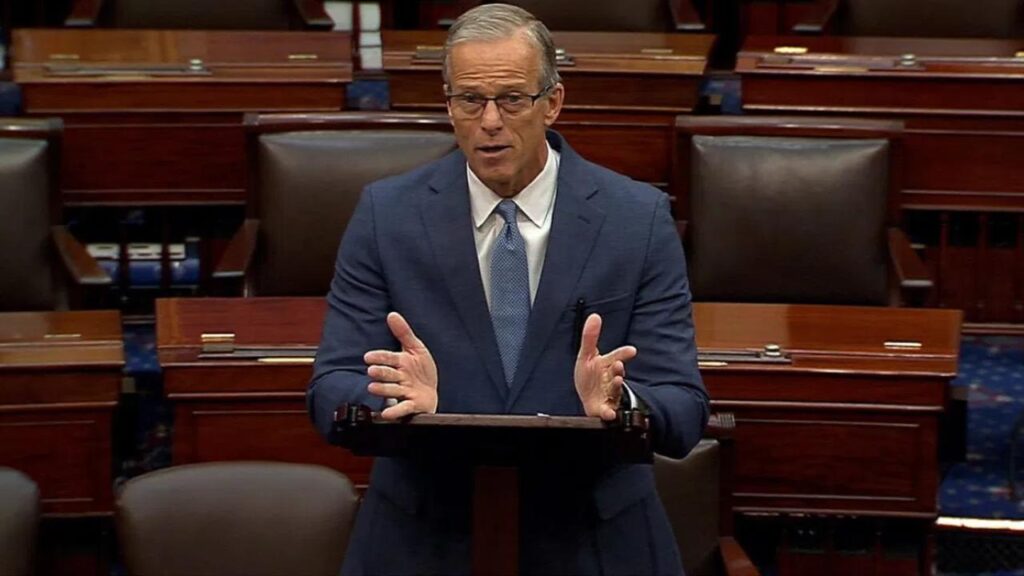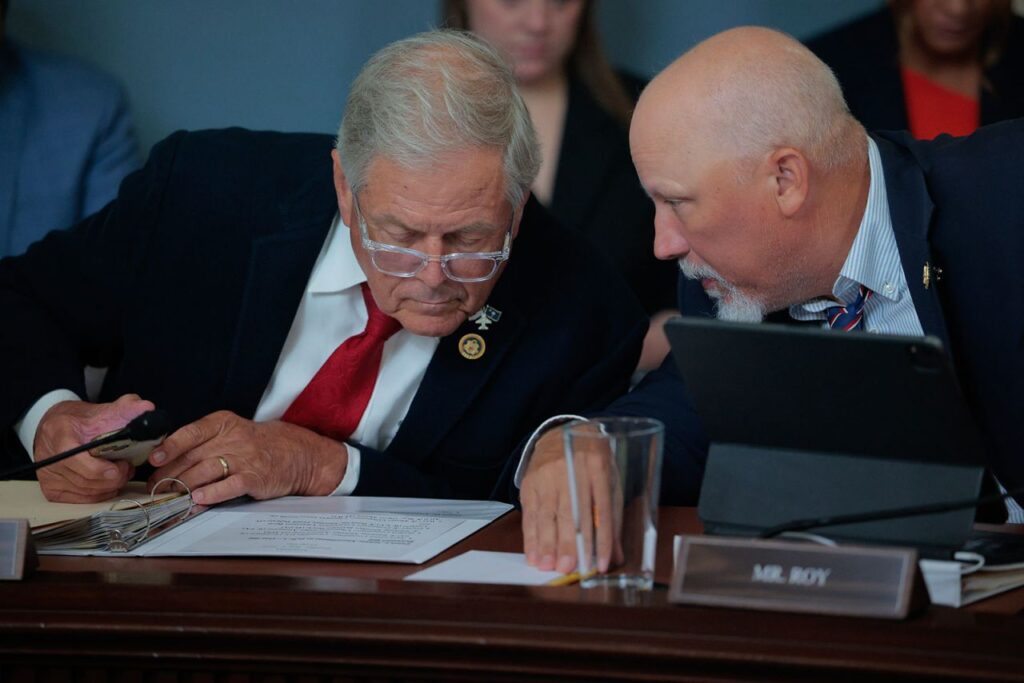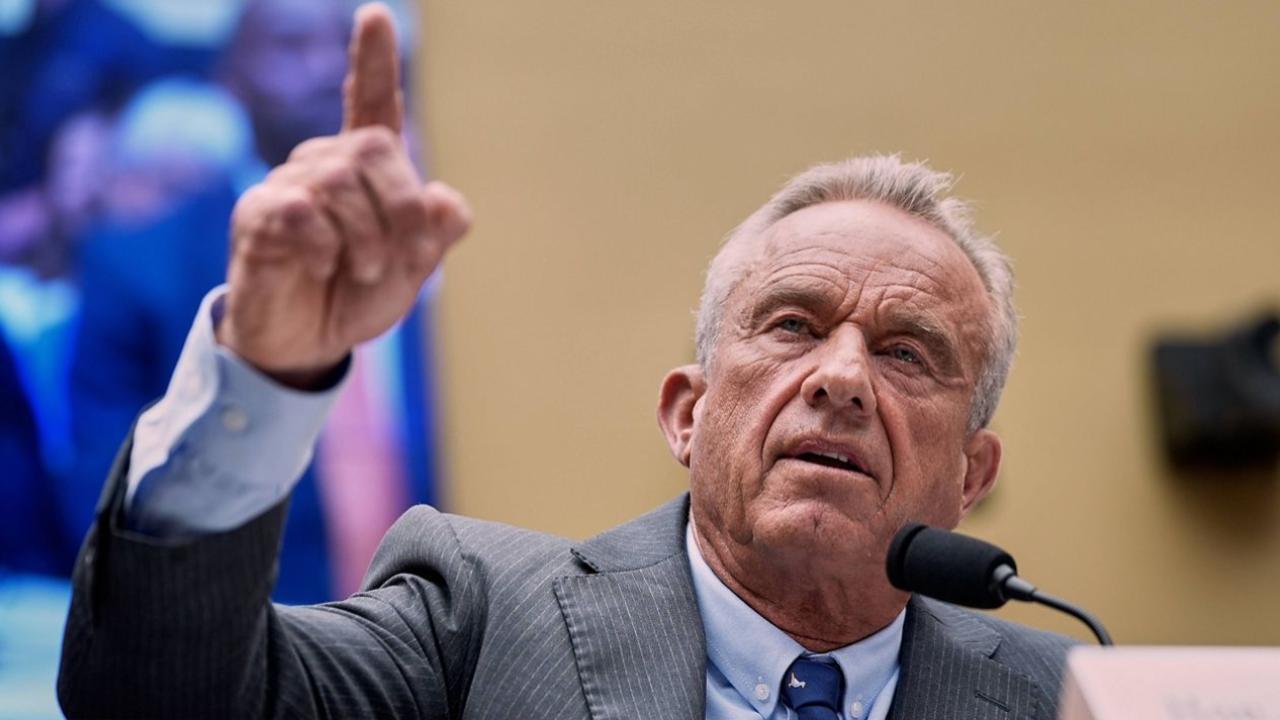Just before the fireworks of July 4, Senate Republicans pushed through what former President Donald Trump has dubbed his “One Big Beautiful Bill”—a sweeping package of tax cuts, border security measures, and safety-net rollbacks. It passed by a razor-thin margin, teeing up a high-stakes showdown in the House, where intraparty conflict may yet derail it.

Senate GOP Just Cleared Trump’s ‘Big, Beautiful Bill’
| Takeaway | Stat |
|---|---|
| Senate approval margin | 51–50, with VP Vance breaking the tie |
| Estimated addition to national debt | $3.3 trillion over 10 years |
| Potential Medicaid impact | Up to 12 million could lose coverage by 2034 |
Trump’s “One Big Beautiful Bill” just cleared the Senate—but its fate now hangs in the balance. If the GOP can hold together in the House, they notch a massive legislative win. If not, they risk a policy implosion with major political costs.
Senate’s Late-Night Push
In a dramatic overnight vote-a-rama, the Senate cleared the $4 trillion package with Vice President J.D. Vance casting the tiebreaking vote. The bill merges Trump-era tax cuts with controversial reforms to Medicaid and SNAP, alongside new spending on border security and defense. Three Republicans—Sens. Susan Collins, Rand Paul, and Thom Tillis—broke ranks, citing concerns over the deficit, safety-net rollbacks, and the process itself.
The package is formally titled the One Big Beautiful Bill Act, and its scope is as vast as its name is Trumpian. It locks in personal and corporate tax rates, adds border surveillance funding, and imposes work requirements on Medicaid recipients. During the session, GOP leaders made last-minute tweaks—particularly to address Alaska-specific Medicaid rates—to secure Sen. Lisa Murkowski’s support.
All Eyes on the House
With Senate passage done, the bill now moves to the House. Speaker Mike Johnson hopes to hold a vote as soon as Wednesday. But insiders say he’s walking a tightrope.
Some moderate Republicans are balking at the deep cuts to Medicaid and SNAP, while fiscal hawks are alarmed by the bill’s $3.3 trillion deficit impact over 10 years. Members of the hard-right Freedom Caucus—like Rep. Chip Roy of Texas—have blasted the package as a betrayal of conservative principles.
This infighting could delay a final vote past the July 4 holiday—a symbolic deadline Trump himself touted, though he recently conceded the House “might need a few more days.”
What’s Inside the Bill?
Tax Cuts Locked In
The bill permanently extends individual and corporate tax cuts from the 2017 Trump tax law. Without this, those cuts would begin expiring at year’s end. Supporters argue this certainty will fuel investment and job creation. Critics call it a giveaway to the wealthy.
Safety-Net Shake-Up
Medicaid work requirements and changes to provider taxes could leave as many as 12 million Americans uninsured by 2034, according to nonpartisan analysts. The bill also reduces funding flexibility for state SNAP programs, tightening eligibility for millions of families.
Border and Defense Boosts
The package includes more than $20 billion for expanded southern border infrastructure, drone surveillance, and military technology upgrades. It’s a nod to both Trump’s immigration platform and Republican hawks.

Political Stakes: Sky High
The bill is more than policy—it’s a loyalty test to Trump and a litmus test for the GOP’s governing capacity. Trump has already threatened primary challenges against dissenting Republicans. Elon Musk has weighed in too, warning that “if they cave on this, I’m done with the GOP”. “They want the win, and they want it now,” one veteran Hill staffer told me. “But you can’t jam a $4 trillion wish list through a divided party and expect no blowback.”
What Happens If It Stalls?
Failing to pass the bill before July 4 wouldn’t kill it—but it would bruise Republican momentum. Here’s what might come next:
- Negotiations reset: Moderate and hard-right members could demand changes, forcing the Senate to revisit the bill.
- Procedural delays: Amendments or substitutions could push passage into August recess.
- Political fallout: Trump could turn on House leaders, deepening GOP divisions heading into the 2026 midterms.
FAQs
What’s the One Big Beautiful Bill?
It’s a comprehensive bill combining tax extensions, safety-net reforms, and immigration and defense funding—crafted as Trump’s signature legislative push for 2025.
Will the bill raise the debt ceiling?
Yes. It includes a statutory debt limit increase of up to $5 trillion, designed to prevent a potential default this fall.
Can the House change it?
They can—but doing so would force the bill back to the Senate, delaying final passage. GOP leaders want to pass it “as-is” to avoid that.






